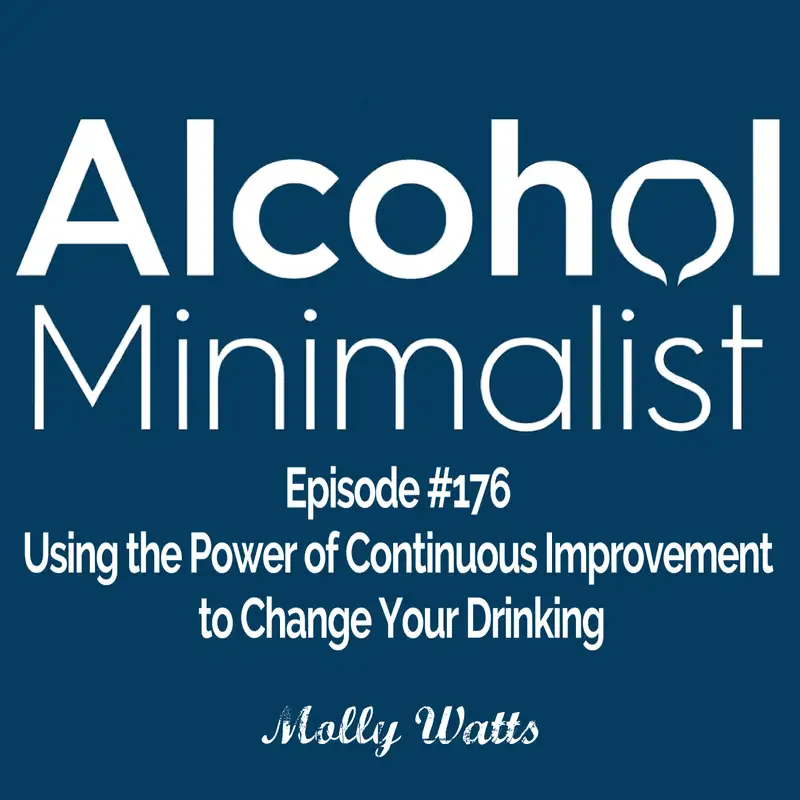Using the Power of Continuous Improvement to Change Your Drinking!
This week on the podcast I'm talking all about the power or continous improvement to change your drinking. Inside everything I've done and everything I've created to help people change their drinking, are the principles of Kaizen.
Listen in to hear all about what Kaizen means and how you can use the power of continuous improvement to change your drinking!
New to the podcast? Download the Podcast Listening Guide.
Want to schedule a call to talk about how I work with people? Click here for a FREE call.
Join my private FB group Alcohol Minimalists here: https://www.facebook.com/groups/changeyouralcoholhabit
Listen in to hear all about what Kaizen means and how you can use the power of continuous improvement to change your drinking!
New to the podcast? Download the Podcast Listening Guide.
Want to schedule a call to talk about how I work with people? Click here for a FREE call.
Join my private FB group Alcohol Minimalists here: https://www.facebook.com/groups/changeyouralcoholhabit
Has this podcast helped you? Please leave a review wherever you listen to podcasts!
Follow me on Instagram: @AlcoholMinimalist
Have you grabbed your free e-book, "Alcohol Truths: How Much is Too Much?" Get it here.
Low risk drinking guidelines from the NIAAA:
Healthy men under 65:
No more than 4 drinks in one day and no more than 14 drinks per week.
Healthy women (all ages) and healthy men 65 and older:
No more than 3 drinks in one day and no more than 7 drinks per week.
No more than 3 drinks in one day and no more than 7 drinks per week.
One drink is defined as 12 ounces of beer, 5 ounces of wine, or 1.5 ounces of 80-proof liquor. So remember that a mixed drink or full glass of wine are probably more than one drink.
Abstinence from alcohol
Abstinence from alcohol is the best choice for people who take medication(s) that interact with alcohol, have health conditions that could be exacerbated by alcohol (e.g. liver disease), are pregnant or may become pregnant or have had a problem with alcohol or another substance in the past.
Abstinence from alcohol is the best choice for people who take medication(s) that interact with alcohol, have health conditions that could be exacerbated by alcohol (e.g. liver disease), are pregnant or may become pregnant or have had a problem with alcohol or another substance in the past.
Benefits of “low-risk” drinking
Following these guidelines reduces the risk of health problems such as cancer, liver disease, reduced immunity, ulcers, sleep problems, complications of existing conditions, and more. It also reduces the risk of depression, social problems, and difficulties at school or work.
★ Support this podcast ★
Following these guidelines reduces the risk of health problems such as cancer, liver disease, reduced immunity, ulcers, sleep problems, complications of existing conditions, and more. It also reduces the risk of depression, social problems, and difficulties at school or work.

